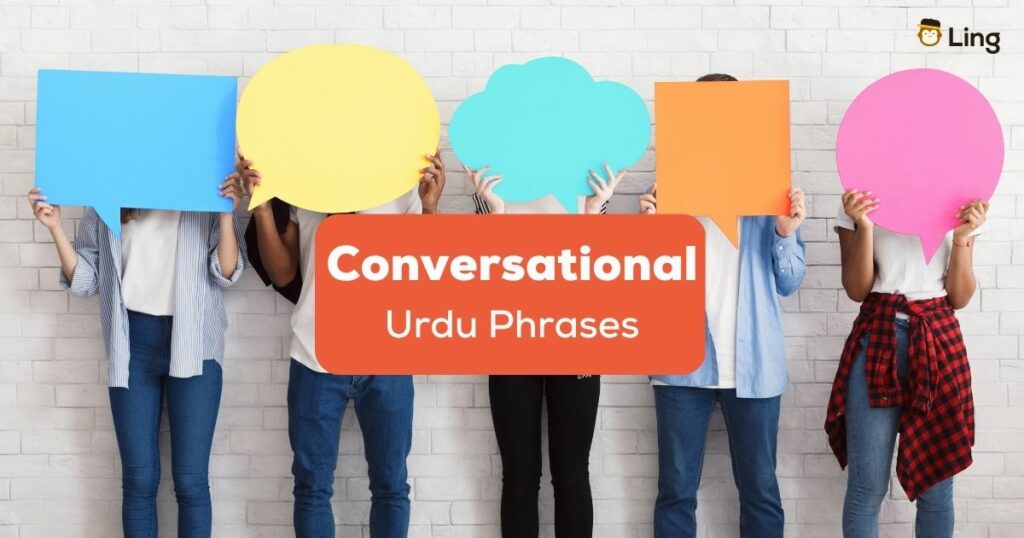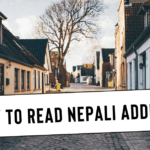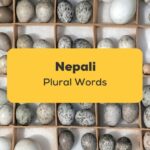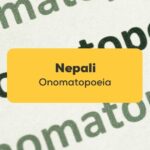Imagine exiting an airport in the Urdu-speaking regions of the Indian subcontinent and being subjected to conversational Urdu phrases like Asalaam-Walaikum (hello), Aap Ka Naam Kya Hai (what’s your name), Aap Ka Saaman De Dein (let me take your luggage) by eager cab drivers. You would be baffled, right?
And at that moment, wouldn’t the thought of knowing some Urdu words beforehand appeal to you? Well, let’s not wait till that moment to arrive. With the help of this article, you can prepare in advance for an amazing local experience in the Urdu-speaking parts of the world. So, Kya Aap Urdu Zubaan Seekhna Chahenge (would you like to learn the Urdu language)? If yes, then keep reading below!
Basic Conversational Urdu Phrases
The most important point to remember when speaking Urdu or practicing daily conversation etiquette is the different use of the Urdu pronoun ‘you’ in different situations. As with Hindi, Punjabi, and other regional dialects of North India and Pakistan, a formal situation demands you to use the word ‘Aap’ (آپ). This basic Urdu word is also used when addressing a stranger or meeting someone for the first time.
In informal situations or amidst familial relations, the word ‘Tum’ (تُم) is used. However, elders are always addressed with an ‘Aap’ in the Urdu culture. Now, with that knowledge in mind, let’s start learning common Urdu words and phrases used in daily conversations.
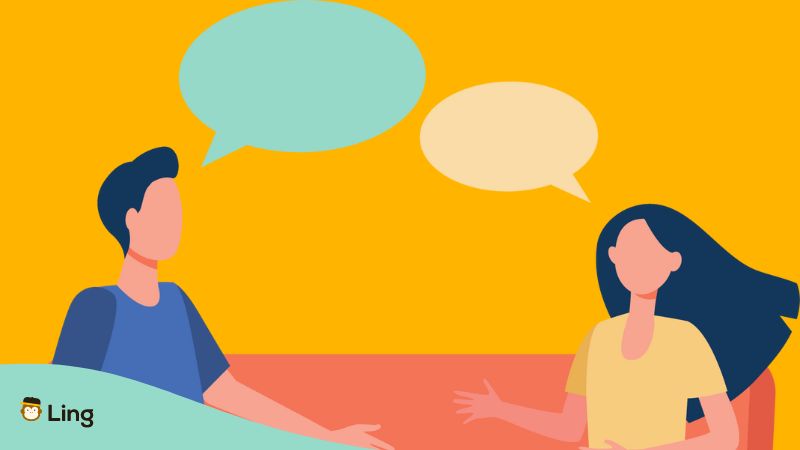
#1 How Are You?
This is the most basic and helpful dialogue starter of all time. To ask someone how are they or how are they doing in Urdu, ask Aap Kaise Hain (آپ کیسے ہیں؟).
To respond to this, you can say Main Theek Hoon, Shukriya (میں ٹھیک ہوں. شکریہ). You can also reply with a Main Behatareen Hoon (میں بہتر ین ہوں) if you are really feeling that spring in your steps! Other common Urdu phrases with a traditional bearing could be Aapki Dua hai ( آپ کی دعا ہے )or Allah Ka karam Hai ( اللہ کا کرم ہے) or Allah Meharbaan Hai (اللہ مہربان ہے). The first sentence means ‘I am good, thanks to your blessings’ while the latter means ‘by God’s grace’ and ‘God is kind’ respectively.
#2 What’s Your Name?
After asking about their well-being, you may take the conversation further by asking about the person, starting with their Urdu name. In Urdu, you ask Aap Ka Naam Kya Hai? It is written as آپ کا نام کیا ہے.
To tell someone your name, you say Mera Naam _____ Hai (میرا نام ہے). People sometimes also use this sentence structure: Mera Naam Hai _______. Also note that when introducing yourself to someone for the first time in the Indian subcontinent, you are expected to use your full name, not just the first name or given name.
#3 Where Are You From?
This is one of the most common questions for travelers and foreigners in the Indian subcontinent. People, especially those not residing in urban areas, are curious about meeting ‘westerners’- and knowing which country they come from. You will hear them ask you, Aap Kahan Se Hain? (آپ کہاں سے ہیں) .
To respond to the above question, you can say Main _______ Se Aaya Hoon. It is written as میں یہاں سے آ یا ہوں. If you are a female, use Aayi instead of Aaya.
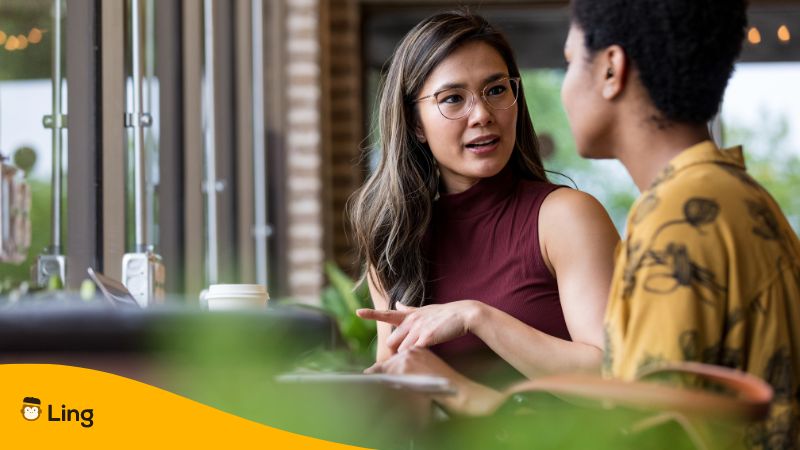
#4 I Don’t Know.
To express that you are clueless about something, say Main nahi janta (میں نہیں جانتا). There is a more colloquial way to say the same thing in Urdu: Nahi Maloom (نہیں معلوم), often accompanied by a sideways head nod or a shoulder shrug.
#5 What Time Is It Now?
To ask the current time in Urdu, you can say Kya waqt Horaha Hai? It is written as کیا وقت ہو رہا ہے؟
#6 What Is This?
If you wish to know the name of something, you can point at it and ask Yeh Kya Hai (یہ کیا ہے).
#7 How Much Does It Cost?
To know the price of something you want to buy while shopping, ask Yeh Kitne Ka Hai (یہ کتنےکا ہے ۔).
#8 I Like It So Much!
To show your genuine appreciation or liking for something, say Mujhe Yeh Bohat Pasand Aaya (مجھے یہ بہت پسند ہے). Similarly, to register your dislike, you can say Mujhe Yeh Pasand Nahi (مجھے یہ پسند نہیں).
#9 Do You Like It?
If you want to ask someone’s opinion about a food, a place, or an experience, you can say Kya ye tumhe acha lagta hai(کیا یہ تمھیں اچھا لگتا ہے).
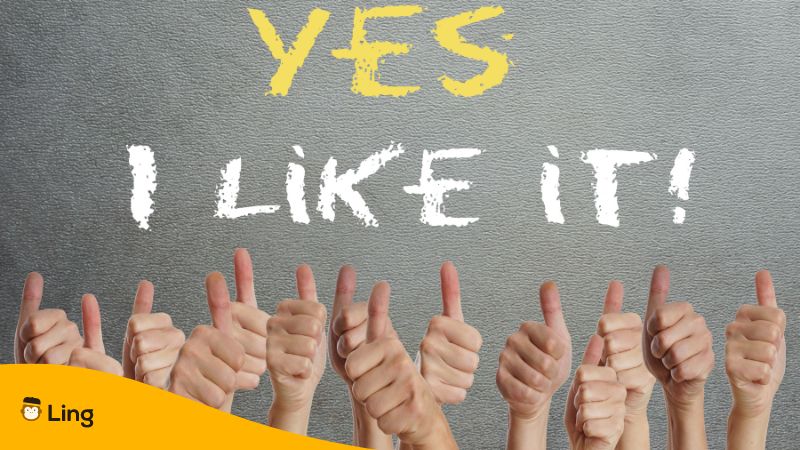
#10 I Want To Go To…
Urdu-speaking locations such as Pakistani or other parts of northern India have tons of travel-worthy locations to try. You can say Mujhe ________ Jana Hai (مجھے جانا ہے) to tell your local acquaintances your next destination. Just insert the place name in the blank! To ask a local rickshaw or cab driver if they can take you to their destination, you say Kya Aap Mujhe ________ Le Chalenge? (Can you take me to _________?)
#11 I Am Hungry!
If you are hungry, say Mujhe Bhookh Lagi Hai ( مجھے بھوک لگی ہے). You can also ask for restaurant recommendations by saying Yahan Aas Paas Kaunsey Achey Restaurants Hain (یہاں آس پاس کون سے اچھے ریسٹراں ہیں۔).
#12 I Am Not Feeling Well.
Meri Tabiyat Theek Nahi Lag Rahi is a handy phrase to learn if you feel under the weather. In Urdu, it is written as میری طبیعت ٹھیک نہیں لگ رہی . Another way to express this word in Urdu health vocabulary is Meri Tabiyat Kharaab Hai or Mujhe Theek Mahsoos Nahi Ho Raha.
#13 I Need To See A Doctor.
Mujhe Doctor Ke Paas Jaana Hai (مجھے ڈاکٹر کے پاس جانا ہے۔) is a must-know phrase in case you find yourself in the middle of a medical emergency.
#14 Thank You Very Much!
Thank you in Urdu translates to Shukriya (شکریہ). To thank someone profusely, you can say Bohat Bohat Shukriya (بہت بہت شکریہ).
#15 Sorry, I Made A Mistake!
To apologize for a mistake in Urdu, you can politely say Maaf Kijiyega, Mujhse Galti Ho Gayi (معاف کیجیۓ گا مجھ سے غلطی ہو گئ ).
Other Basic Urdu Expressions
If the 15 expressions we covered above are still not enough, check out these other phrases that you can use when speaking with Urdu speakers.
| English | Urdu | Roman Transcription |
|---|---|---|
| Good Morning | صبح بخیر/سلام | Subah Ba Khair/ Salaam |
| Good Night | شب بخیر | Shab Ba Khair |
| Good Bye | خدا حافظ | Khuda Hafiz |
| Congratulations | مبارک ہو | Mubarak Ho |
| May God Bless You | اللہ کا فضل ہو | Allah Ka Fazal Ho |
| Happy Birthday | سالگرہ مبارک ہو | Salgirah Mubarak Ho |
| Excuse Me | معاف کیجئے گا | Maaf Kijiyega |
Interested In Learning Some More? Learn Urdu With Ling
These phrases in Urdu weren’t that difficult, right? But wait! There’s more to Urdu than just the basics! By delving into the language’s extensive vocabulary, phrases, and expressions, you can rapidly improve your proficiency. Plus, as you progress in this Asian language, you’ll find that it’ll help you make connections and build relationships with the locals and native speakers in new and exciting ways. So don’t hesitate to explore the depths of this fascinating language and see where it takes you!
Want to add some fun to your language-learning journey? Look no further than the Ling app! With its innovative approach to language education, you’ll feel like you’re playing a game rather than studying. Plus, with over 60 languages to choose from (including Urdu, of course), you’ll have endless opportunities to broaden your linguistic horizons.
So what are you waiting for? Grab your phone, hit up the Google Play Store or App Store, and start your exciting language-learning adventure with the Ling app!
Updated by Samawiyah Hasnain
